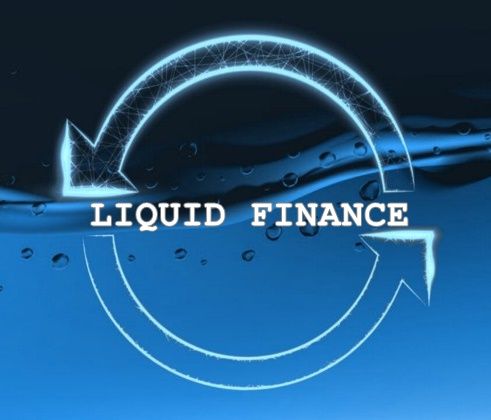Liquid Finance is a decentralised liquidity providing service that aims to solve problems of capital inefficiency and value accrual in DeFi markets.

Liquid Finance is an innovative approach to liquidity provisioning that solves capital inefficiency and value accrual issues.
This project attempts to solve the problems of liquidity provisioning using a two-token system comprised of lqETH and LIQD. lqETH is a fractional-reserve token pegged to the price of ETH, which can be minted and redeemed by the protocol. It maintains price stability and collateralizes itself using our unique Liquid Arbitrage Mechanism (LAM).
Liquid Finance, basic introduction:
Here is a summary of the main advantages and characteristics of this ecosystem that will certainly interest fans of decentralized finance news:
Harvests MEV opportunities resulting from liquidity pools, which is normally extracted away by searchers, using our Liquid Arbitrage Mechanism (LAM).
Solves the issue of capital inefficiency in liquidity providing by incorporating the fractional-reserve model of Frax Finance. This can provide greater scaling ability, allowing DeFi to compete with traditional financial institutions.
Incentives for farming and bonding offered for a limited period, to speed adoption and grow protocol reserves.
Bonds used to create Protocol Owned Liquidity (POL), increasing price stability of LIQD.
Protocol revenue in the form of ETH will be paid out to stakers and lockers of LIQD tokens. Additionally those who lock LIQD for an 8-week period earn forfeited vesting rewards as LIQD.
LIQD token:
LIQD is the protocol token, the value of which will ultimately be stabilized by its ability to earn a share of the protocol’s revenue when staked in the staking contract. It also serves a function to back undercollateralized redemptions of the lqETH token.
Initial distribution of the token will be used to incentivize user adoption through farms and bonds. After the initial Growth Phase of the protocol and full collateralization of the redemption pool, there will be no further issuance of LIQD tokens.
LIQD can be earned in the following ways:
- Providing lqETH-ETH and LIQD-ETH liquidity
- Bonding lqETH with the protocol
- Staking and locking LIQD with the protocol
In conclusion:
The core values of DeFi are to build open access financial systems, free from the censorship, invasion of privacy, opacity, dishonesty and manipulation that all too often go hand in hand with centralized power. Our ability to build a new financial system based on these values must, by definition, be achieved through the decentralization of liquidity.
Want to know more?